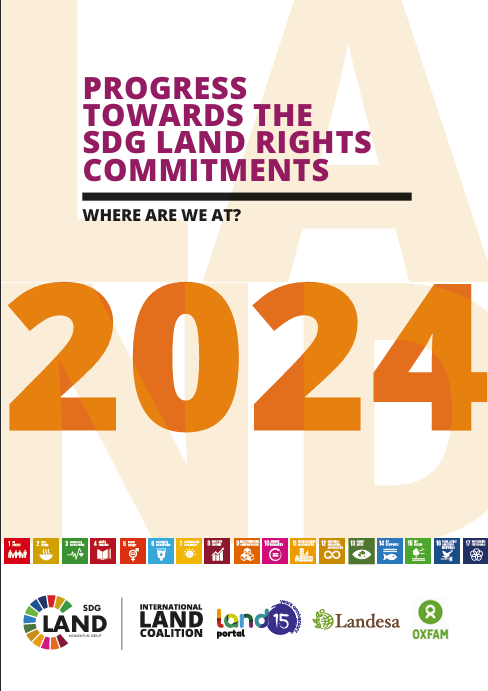About Landesa
Landesa partners with governments and local organizations to ensure that the world’s poorest families have secure rights over the land they till. Founded as the Rural Development Institute, Landesa has helped more than 105 million poor families gain legal control over their land since 1967. When families have secure rights to land, they can invest in their land to sustainably increase their harvests and reap the benefits—improved nutrition, health, and education—for generations.
Resources
Displaying 1 - 5 of 107Progresso em direção aos compromissos de degradação e restauração de terras dos ODS 2023
Quando os Estados membros da Nações Unidas adotaram os Objetivos de Desenvolvimento Sustentável (ODSs) em 2015, comemoramos o reconhecimento de líderes mundiais do papel fundamental e estratégico que a gestão sustentável da terra deve desempenhar para promover a resiliência climática, a conservação da biodiversidade e a manutenção de suprimentos de alimentos suficientes para todas e todos nós.
Progresso em direção aos compromissos de direitos fundiários dos ODS
Direitos à terra seguros para todas e todos - mulheres e homens, independentemente de etnia ou religião, ou status civil, econômico, social ou político - são fundamentais para alcançar um mundo livre de pobreza, fome e discriminação sistemática de gênero. Portanto, em 2015, comemoramos quando líderes mundiais reconheceram a importância fundamental dos direitos à terra na Agenda 2030 e nos Objetivos de Desenvolvimento Sustentável. Os ambiciosos compromissos escritos dos Estados-Membros, no entanto, não foram seguidos por ações concretas.
Progress towards the SDG land degradation and restoration commitments 2023
When UN member states adopted the Sustainable Development Goals (SDGs) in 2015, we celebrated world leaders’ recognition of the foundational and strategic role that sustainable land management must play to advance climate resilience, biodiversity conservation, and maintain sufficient food supplies for us all.
Progress Towards the SDG Land Rights Commitments
Secure land rights for all—women and men, regardless of ethnicity or religion, or civil, economic, social, or political status—are foundational for achieving a world free of poverty, hunger, and systematic gender discrimination. So, in 2015, we celebrated when world leaders recognized the critical importance of land rights within Agenda 2030 and the Sustainable Development Goals. Member States’ ambitious written commitments, however, have not been followed by on-the-ground action.
Growing the Field
Land rights are ascendant across the development sector. Movements addressing women’s empowerment, poverty, social justice, food security and climate change are all increasingly turning to land rights to strengthen their cause. In 2022, renowned philanthropist MacKenzie Scott joined these efforts by making an unprecedented $20 million investment in our work. Ms. Scott’s generous gift represents a profound endorsement of the power of land rights to improve the lives of women, men, and communities around the world.







